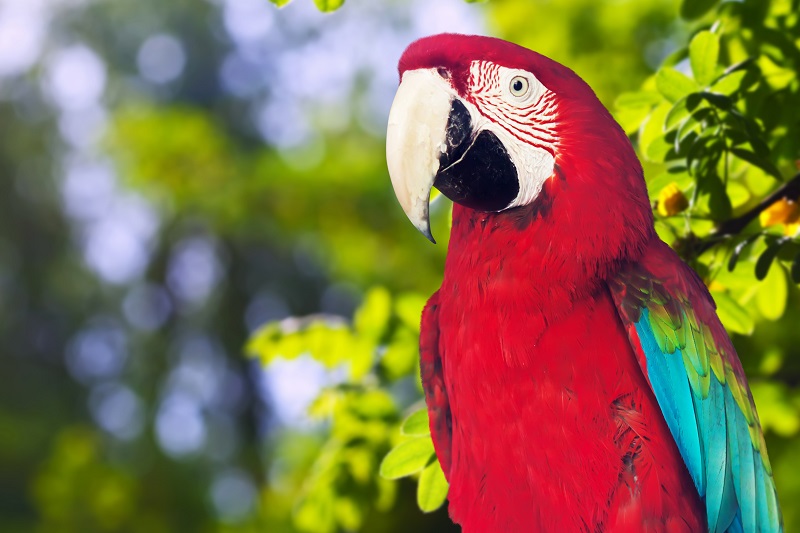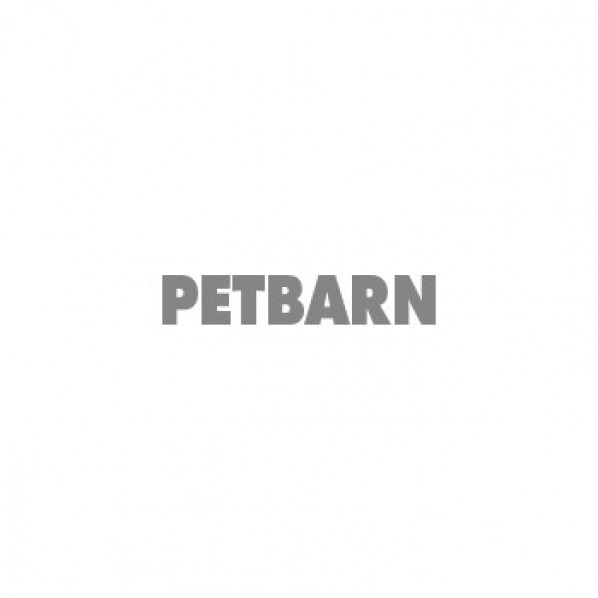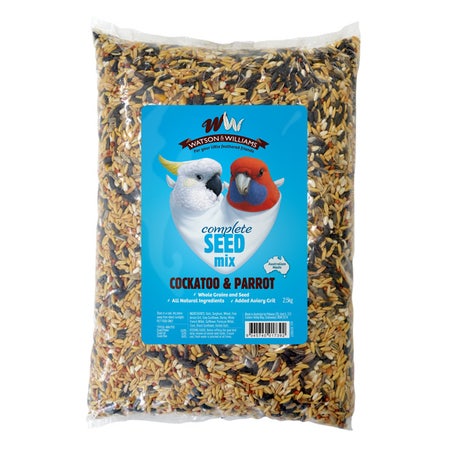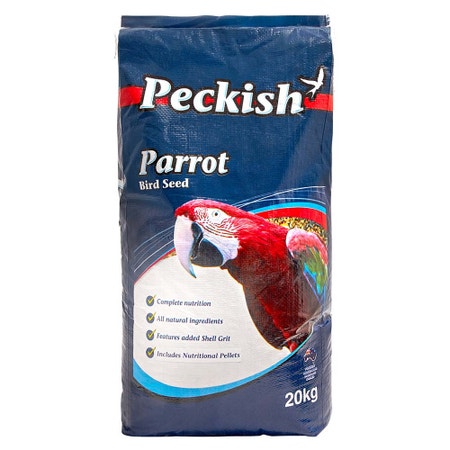A pet that will add vitality and personality to your home, parrots are the perfect birds to keep as a new pet owner. Create the perfect home for your new parrot and get to know their needs with this helpful guide.
Parrot fact file
Life span – Up to 80 years
Size – 12-100cm
Diet – Bird pellets, grains, fruits and veggies
Home – Cage that is at least 60cm x 60cm x 90cm. The bigger the better.
Care and maintenance
Parrots are the best at mimicking speech of all companion birds, so be prepared for plenty of chatter!
Based on breed, parrots vary in size from 12cm cockatiels to 1m macaws. Unlike other birds, who are considered senior around age 6, most parrot species are only considered senior at around 12 years of age – and some around 30 years of age. Other parrot breeds can live well into their 80s, and some cockatoos have been recorded even older.
Your parrot can’t resist some love and affection. They respond very well to learning new things and exercising their brain will help to keep them happy. However, it may vary depending upon the species of parrot.
Setting up
Your parrot’s cage will need to be of sufficient space. Talk to your local Petbarn team member about the best cage for their size. No cage is ever too big – give your parrot the biggest cage that can be accommodated in your home.
Cushion the cage floor using newspapers or paper towels. If you are planning to breed your birds, find nesting material at your local Petbarn.
Provide at least two tree branches of different thickness. Place them at different heights for your parrot to jump between to keep their feet strong and healthy and nails short.
Toys of different materials like firm plastic, wood or safe metals are perfect for your parrot. Be sure they cannot chew up these toys and remove them if this occurs. Include foraging toys to keep them entertained.
Position your cage so at least one side is against a wall to help your parrot feel secure. Keep their cage out of direct sunlight or anywhere too aromatic, like the kitchen, as parrots have sensitive respiratory systems, especially with Teflon pans.
You will need to clean the cage weekly or earlier if it gets dirty. Clean bowls, water bottles and toys daily to prevent food spoilage. Replace the bedding once a week or as necessary.
Your parrot likes to be secure in the dark when getting their 12 hours of sleep each night. It’s recommended you have a separate, smaller sleeping cage for your parrot to move into at bedtime. Whether you have a separate cage or not, at night you will always need to cover it with a cage cover.
Feeding
Nutritionally balanced pellets or crumbles are good for your parrot’s diet. Feed them fruits and veggies as well, and use nuts and seeds as a treat.
The majority of parrot breeds enjoy vegetables such as kale, zucchini and shredded carrot, while their favourite fruits are papaya, banana and rockmelon. Never give your parrot chocolate, caffeine, avocados, fruit seeds, mushrooms, peanuts, onions or garlic. Your parrot’s species will dictate how often they’ll eat. Talk to your local Petbarn member about what each species of parrot eats.
It’s important you refresh your bird’s pellet bowl daily and give them access to water at all times.
Travelling
The best way to transport your parrot is in a covered small cage, pet carrier or even a small box. This should not be stifling, but just big enough for your pet to be comfortable. Leave any sharp objects or unsecure items at home to prevent your pet being injured. One or two securely fixed bars is enough for your them to enjoy the ride.
Secure the cage with a safety belt. For long journeys, you may need to shield the cage from direct sunlight and make water stops to keep your pet hydrated and comfortable.
Grooming
Parrots groom themselves regularly, preening their feathers, bathing and even sometimes tending to their own talons.
Provide your parrot with a bath or they can use their water bowl if it’s easier, but this means daily cleaning. Alternatively, you can put tepid water into a misting bottle and spray your parrot. This will give them a shower to stay clean and keep them fresh in the warm weather. Make sure you notice your parrot’s behaviour while spraying as some might not like it.
You can purchase shower perches for your bathroom – parrots love getting in. Parrots also love splashing around in the sink once in a while!
Health care
Parrots are prone to a variety of diseases and ailments that can potentially be fatal if not treated properly. The species of parrot you’re bringing into your new family will determine what type of ailments or diseases they may be more prone to. Make sure you talk to your local Petbarn team member or local Greencross Vets to get educated on your new parrot’s health needs.
Parrots are susceptible to certain bacteria, viruses, internal parasites, mites and lice, and nutrient deficiencies. Frequently check your bird for signs such as fluffed up feathers, closed eyes, lethargy, hunched posture, droopy tail and/or wings, sneezing and coughing, diarrhoea and irregular breathing.
If you notice any of these symptoms or anything else peculiar about your parrot, refer to your local Greencross Vets.
Pet safety tips
It’s best not to handle your parrot for three to four days after bringing them home. If you notice any signs of illness, it may be due to stress. Contact your local Greencross Vets for health advice.
When letting your parrot out of their enclosure, make sure your house is safe. Keep toilet seats down, windows closed, fans off and hazards stowed away. Treat it like baby proofing a house for a toddler – parrots share the same inquisitive nature and will most definitely get up to mischief! So, supervise them at all times.
Tip: Birds have sensitive respiratory systems. Scented candles, air fresheners and perfumes can harm them.
Parrot checklist
Petbarn has all the parrot supplies you need to care for your pet. Shop online or in-store and mark each item off your checklist now.
Housing
Food
- Bird pellets
- Fruits
- Vegetables
Miscellaneous
- Swing
- Cage cover
- Travel cage







